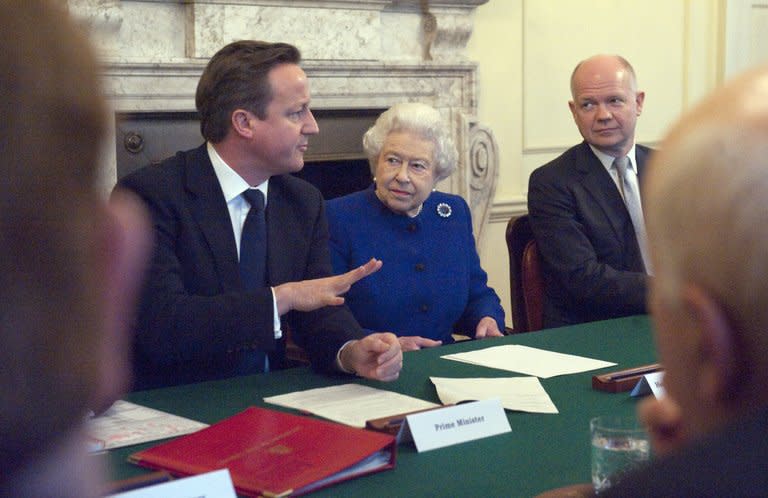Lawmakers want sweeping changes to keep UK in EU
Lawmakers from Prime Minister David Cameron's Conservative Party will on Wednesday issue a "manifesto" spelling out the sweeping changes that need to be made to keep Britain in the European Union. The Fresh Start group of eurosceptic MPs will urge Cameron to demand four "significant revisions" when he makes his long-awaited speech on Friday setting out his plans to change the conditions of Britain's membership, and likely promising a referendum after the general election in 2015. The group, which is believed to have the backing of around 100 Tory MPs, is expected to tell Cameron that "the status quo is no longer an option." The manifesto will call for the repatriation of all social and employment law and an opt-out from all existing policing and criminal justice measures, according to a copy seen by the Daily Telegraph. It will also demand an "emergency brake" on any new laws affecting the financial sector and "an end to the European Parliament's costly monthly move from Brussels to Strasbourg," the newspaper reported Wednesday. The report, backed by Foreign Secretary William Hague, will also propose limits to the free movement of people across the EU. The foreign minister revealed that the report could drive Tory policy should the party win the next general election. "Many of the proposals are already government policy, some could well become future government or Conservative party policy and some may require further thought," he wrote in the report's foreword, according to the Telegraph. "Europe is changing so fresh thinking is doubly welcome," he added. "It will be essential reading for all of us when we come to write the Conservative party's next general election manifesto." Deputy Prime Minister Nick Clegg warned Cameron on Tuesday that a prolonged period of uncertainty about Britain's relationship with the EU would have a "chilling effect" on the economy. "We should be very careful at a time when the British economy is still haltingly recovering from the worst economic shock in a generation to create a very high degree, and a prolonged period, of uncertainty," Clegg told the BBC. Cameron is under pressure from members of his party to try to take back powers from Brussels to London, but the issue has caused tensions with business leaders and Clegg's pro-European Liberal Democrats, the coalition partners. In a tetchy interview, Clegg noted that a law was already in place requiring such a vote where any new treaty transferred fresh powers to the EU. Any further discussion about referendums was unwise, he said. "Given that we've provided that clarity... I don't think it is wise to add to that with a degree of uncertainty which I believe would have a chilling effect on jobs and growth in this country," he said. "And for me the priority remains jobs and growth, not an arcane debate which will go on for years and years." German politicians have accused Britain of trying to blackmail its European partners by warning that either it changes its membership conditions or proposes to increasingly eurosceptic voters that London leave the EU altogether. Nigel Sheinwald, Britain's ambassador to Washington until last year, said in a Guardian interview published Wednesday that membership of the EU was vital for Britain's world standing. "If Britain is active and influential in Washington that makes us more influential in Brussels, Delhi and elsewhere," he said. "Equally if we are influential in Europe, then we have a bigger impact in Washington and the other power capitals. These things are mutually reinforcing," he added.



